Filter by
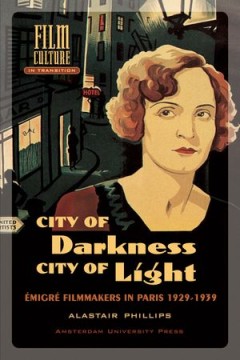
City of Darkness, City of Light: Emigré Filmmakers in Paris 1929-1939
This title is the first ever book-length study of the cinematic representation of Paris in the films of German emigré filmmakers, who found there a first refuge from Hitler. In coming to Paris - the privileged site in terms of production, exhibition as well as the cinematic imaginary of French film culture - these experienced film professionals encountered also a darker side: hostility toward …
- Edition
- -
- ISBN/ISSN
- 9789053566336
- Collation
- -
- Series Title
- -
- Call Number
- 791.43 PHI c
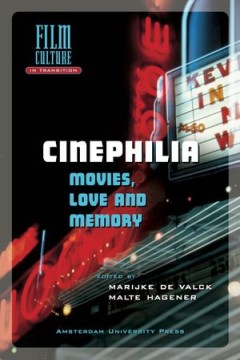
Cinephilia: Movies, Love and Memory
This anthology explores new periods, practices and definitions of what it means to love the cinema. The essays demonstrate that beyond individualist immersion in film, typical of the cinephilia as it was popular from the 1950s to the 1970s, a new type of cinephilia has emerged since the 1980s, practiced by a new generation of equally devoted, but quite differently networked cinephilies. They ob…
- Edition
- -
- ISBN/ISSN
- 9789053567685
- Collation
- -
- Series Title
- -
- Call Number
- 791.43 CIN c
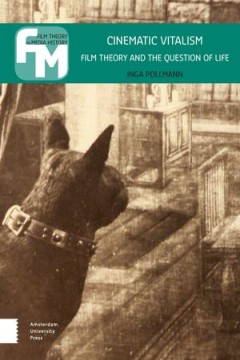
Cinematic Vitalism: Film Theory and the Question of Life
This book argues that there are constitutive links between early twentieth-century German and French film theory and practice, on the one hand, and vitalist conceptions of life in biology and philosophy, on the other. By considering classical film-theoretical texts and their filmic objects in the light of vitalist ideas percolating in scientific and philosophical texts of the time, Cinematic Vi…
- Edition
- -
- ISBN/ISSN
- 9789048534005
- Collation
- -
- Series Title
- -
- Call Number
- 791.43 POL c
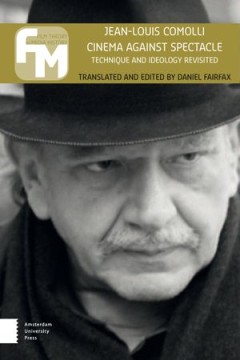
Cinema Against Spectacle: Technique and Ideology Revisited
Jean-Louis Comolli’s six-part essay Technique and Ideology had a revolutionary effect on film theory and history when it first appeared in Cahiers du Cinéma in 1971. In 2009, Comolli revisited his earlier text, arguing that the present age, marked by the total dominance of media-filtered spectacle over image production, makes the need for an 'emancipated, critical spectator' more pressing th…
- Edition
- -
- ISBN/ISSN
- 9789089645548
- Collation
- -
- Series Title
- -
- Call Number
- 791.43 COM c
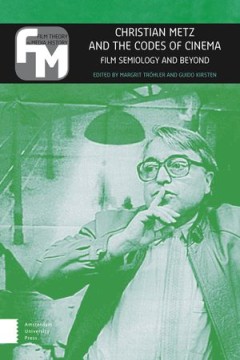
Christian Metz and the Codes of Cinema: Film Semiology and Beyond
A pioneering figure in film studies, Christian Metz proposed countless new concepts for reflecting on cinema, rooted in his phenomenological structuralism. He also played a key role in establishing film studies as a scholarly discipline, making major contributions to its institutionalisation in universities worldwide. This book brings together a stellar roster of contributors to present a close…
- Edition
- -
- ISBN/ISSN
- 9789048527564
- Collation
- -
- Series Title
- -
- Call Number
- 791.43 CHR c
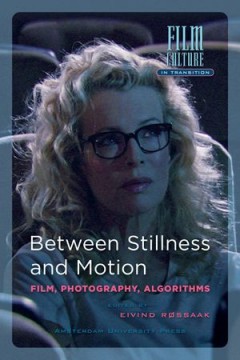
Between Stillness and Motion
New technological media such as film, photography and computers have altered the way we perceive possible relations between stillness and motion in the visual arts. Traditionally, cinema theory saw cinema and especially the 'illusion of motion' as part of the ideological swindle of the basic cinematic apparatus. This collection of essays by acclaimed international scholars including Tom Gunning…
- Edition
- -
- ISBN/ISSN
- 9789089642127
- Collation
- -
- Series Title
- -
- Call Number
- 791.43 ROS b
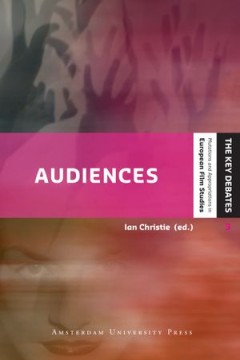
Audiences
This timely volume engages with one of the most important shifts in recent film studies: the turn away from text-based analysis towards the viewer. Historically, this marks a return to early interest in the effect of film on the audience by psychoanalysts and psychologists, which was overtaken by concern with the 'effects' of film, linked to calls for censorship and moral panics rather than to …
- Edition
- -
- ISBN/ISSN
- 9789089643629
- Collation
- -
- Series Title
- -
- Call Number
- 791.43 CHR a
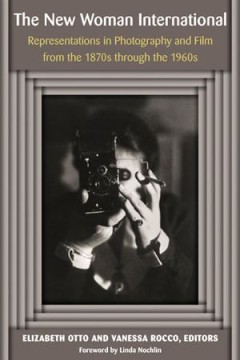
The New Woman International: Representations in Photography and Film from the…
Images of flappers, garçonnes, Modern Girls, neue Frauen, and trampky—all embodiments of the dashing New Woman—symbolized an expanded public role for women from the suffragist era through the dawn of 1960s feminism. Chronicling nearly a century of global challenges to gender norms, The New Woman International: Representations in Photography and Film from the 1870s through the 1960s is the …
- Edition
- -
- ISBN/ISSN
- 9780472900367
- Collation
- -
- Series Title
- -
- Call Number
- 791.43 NEW n
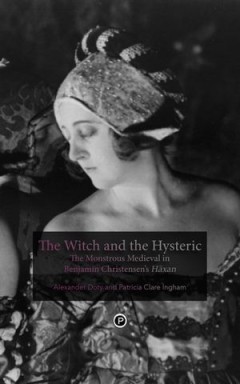
The Witch and The Hysteric: The Monstrous Medieval in Benjamin Christensen'S …
Benjamin Christensen’s 1922 Swedish/Danish film Häxan (known under its English title as Witchcraft Through the Ages) has entranced, entertained, shocked, and puzzled audiences for nearly a century. The film mixes documentary with fantasy, history with theatrics, religion and science, the medieval past and modern culture. This uncanny content is compounded by the film’s formal strangeness, …
- Edition
- -
- ISBN/ISSN
- 9780692230152
- Collation
- -
- Series Title
- -
- Call Number
- 791.43 DOT w
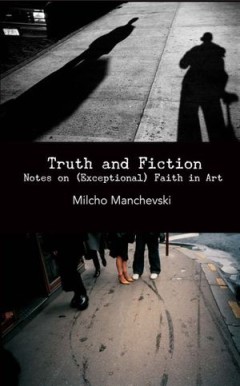
Truth and Fiction: Notes On (Exceptional) Faith in Art
Reflecting upon his experience making his 2010 feature film Mothers, a cinematic triptych interweaving three narratives that are each, in their own way, about the often tenuous lines between truth and fiction, and one of which actually morphs into a documentary about the aftermath in a small Macedonian town where three retired cleaning women were found raped and killed in 2008 and the murderer …
- Edition
- -
- ISBN/ISSN
- 9780615647104
- Collation
- -
- Series Title
- -
- Call Number
- 791.43 MAN t
 Computer Science, Information & General Works
Computer Science, Information & General Works  Philosophy & Psychology
Philosophy & Psychology  Religion
Religion  Social Sciences
Social Sciences  Language
Language  Pure Science
Pure Science  Applied Sciences
Applied Sciences  Art & Recreation
Art & Recreation  Literature
Literature  History & Geography
History & Geography